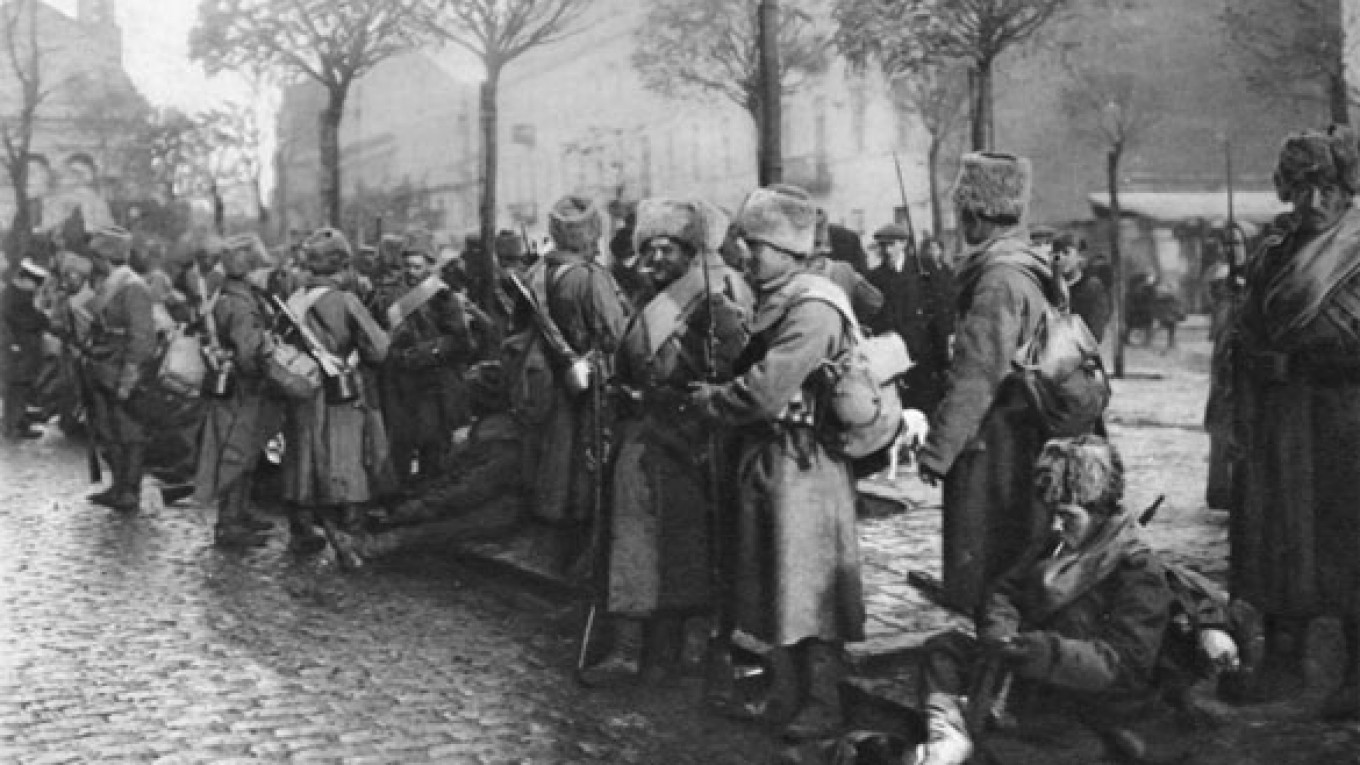British historian and journalist Sir Max Hastings has penned volumes chronicling World War II, the Korean War and the Falklands War.? His latest work, "Catastrophe 1914: Europe Goes to War," recounts the events of the first year of World War I and was published in September 2013, in time for this year's centennial anniversary of the start of the war.
In Britain, the of World War I is capturing the British public's imagination throughout the year with numerous events and exhibitions, yet much less attention is being paid in Russia. The Moscow Times spoke to Hastings about why the war has less resonance for the Russians than for the British.
"World War I was very nearly written out of Russian history during the early years of the Soviet Union because of the Bolshevik view that it was a capitalist war in which the Russian people had been the victim rather than the protagonist," Hastings explained, adding that World War II fit better into the heroic version of Russian history promulgated by Vladimir Putin.
Russia's war dead were three times as many as Britain and many more than the French, with a figure of at least 2 million. Some historians give Russia some of the blame for the outbreak of World War I, but Hastings opposes this view.
"Some people say that Russia should never have mobilized in response to the Austro-Hungarian threat to Serbia, but personally I think that the Russians were entirely entitled to take the view that Serbia was under the Tsar's protection," Hastings said, noting that the instability of the Russian Empire at the time made the move dangerous for the Tsar.
Following the February 1917 revolution and Nicholas II's abdication, there was what was known Trench Bolshevism — mutinies in the trenches, with Russian soldiers refusing to obey orders and deserting. Sir Max was not surprised that substantial parts of the Russian army refused to continue the war, but instead finds it remarkable that the same did not happen in other armies as well. ?
"An awful lot of politicians in Britain were frightened that the same might happen in the British lines," Hastings said, noting the huge industrial unrest throughout Europe in the years preceding the war, as well as ongoing conflict in Ireland.
Twenty-three years after the collapse of the Soviet Union, Hastings feels that there is a tremendous sense of disappointment that the world has moved on, and the opportunity for welcoming Russia into the community of nations in the West has passed without result.
"I do not think that all blame lies on the Russian side, by any means," he reflects, adding that "the Western powers behaved with a degree of? condescension towards Russia that was bound to deeply distress, and indeed anger, as proud a nation as Russia. There was condescension in both Washington and the European capitals and this did not help in any way with creating a happy bilateral relationship."
Hastings has little time for President Putin's interpretation of history and "his shameless enthusiasm for Stalin," whom Hastings considers to be "a monster in the same league as Hitler."
Sir Max does not feel there is any danger of going back to the Cold War era and the days of nuclear confrontations, but he says that "the feeling in London, rightly or wrongly, is that the Russian government sees politics and diplomacy as a zero-sum game, in whatever the West wants must be something that Russia opposes.? And this is very depressing, but it is very hard to see it changing."
Contact the author at artsreporter@imedia.ru
A Message from The Moscow Times:
Dear readers,
We are facing unprecedented challenges. Russia's Prosecutor General's Office has designated The Moscow Times as an "undesirable" organization, criminalizing our work and putting our staff at risk of prosecution. This follows our earlier unjust labeling as a "foreign agent."
These actions are direct attempts to silence independent journalism in Russia. The authorities claim our work "discredits the decisions of the Russian leadership." We see things differently: we strive to provide accurate, unbiased reporting on Russia.
We, the journalists of The Moscow Times, refuse to be silenced. But to continue our work, we need your help.
Your support, no matter how small, makes a world of difference. If you can, please support us monthly starting from just $2. It's quick to set up, and every contribution makes a significant impact.
By supporting The Moscow Times, you're defending open, independent journalism in the face of repression. Thank you for standing with us.
Remind me later.


